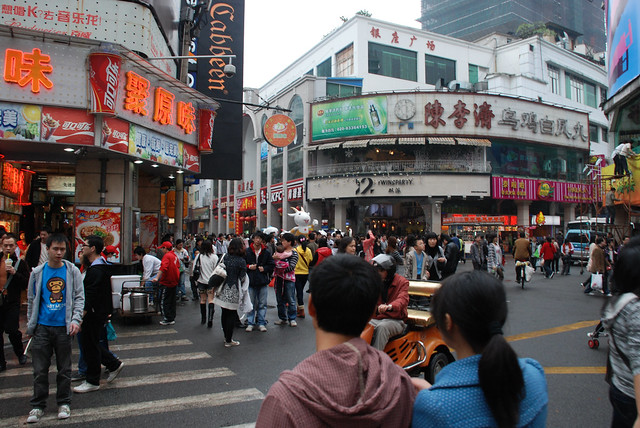A recent BBC Radio 4 show “China’s New Iron Rice Bowl” is a fascinating view into the problems and challenges the new growing middle class and urban migrants have created for China.
Since the show isn’t available outside of the UK and might dissapear from BBC’s website I pulled out some of the points relevant to brands and companies interested in China’s consumers and market.

Although today the biggest consumer of China’s goods have been the Western countries, its own middle class has been growing quickly over the last decade and is considered to be 300 million strong now. According to statistics they have about ? of their income to spend on non-essentials.
Shopping online is very common among young professionals with Taobao.com being the Amazon of China. 8 years ago it was still unusual to have branded items and now it’s the norm to talk about buying designer handbags, smartphones and the like - they are very keen consumers.
China’s government has a goal of making sure China replaces USA as the biggest consumer market by 2020. This view is only strengthened by the financial crisis which meant less export to the traditional big consumer markets.
Not with out the challenges
Wealthy middle classes:
- High real estate prices - many younger people need the help of their parents to be able to afford buying apartments. Big new housing blocks are being built but the prices are astronomical - almost £0.5 million for an ordinary modern flat.
- Although 36 million new apartments have been built as part of the new low cost housing scheme, majority of its intended audience feels that the housing compounds are being filled up with the relatives of the officials.

Urban migrants:
200 million urban migrants who have flowed into the large cities to find work in building, cleaning etc. lack even the most basic social welfare. A permit (so called hukou) to live in the city, something that urban migrants do not possess, is the golden key that unlocks housing benefits, access to public education and basic health care.
In 2009 10% of the rural counties introduced a new old age pension scheme that put some money into the pockets of old people and it’s now deemed a success. Parents became less dependent on their kids who moved to the cities allowing young people to save for their own future. However, as the Chinese population gets older better welfare benefits will pose a great challenge in couple of decades.
The future - A new iron rice bowl
Domestic consumption has fallen over the last couple of years and lack of social welfare is cited as one of the reasons. However there are plans to boost pension, schooling and housing - forging a new iron rice bowl.
The Chinese government is trying hard to convince its citizens they can worry less, save less and spend more. But even if they start spending - will they be tempted to spend on Chinese goods or would they rather buy a luxury German car?
* Iron rice bowl - Up until the early 1980s the Chinese state offered cradle-to-grave security - free education for all, career, health care etc.
Related stories:
- China breaks the iron rice bowl (Le Monde Diplomatique)
- China: bored with window shopping? (Financial Times)
- From Mass to Mainstrea: Keeping Pace with China’s Rapidly Changing Consumers (McKinsey & Company)
